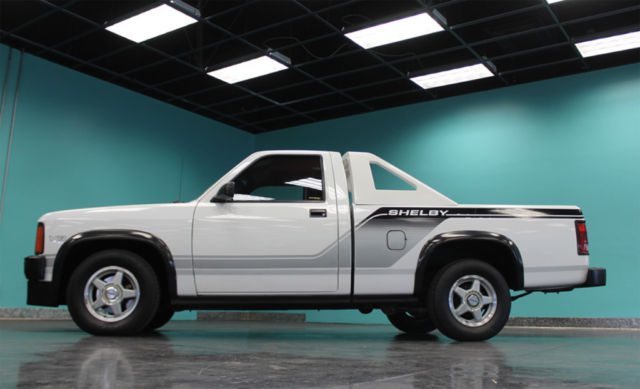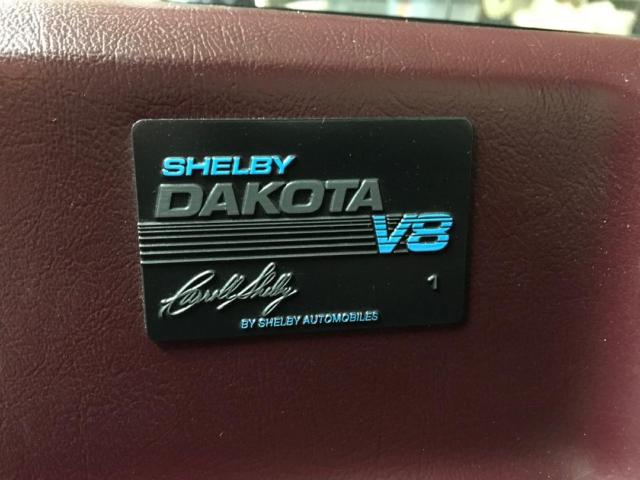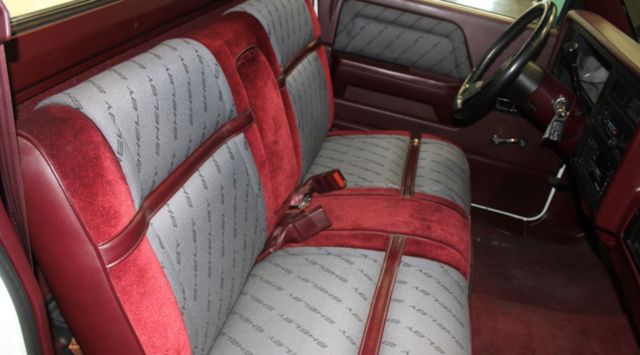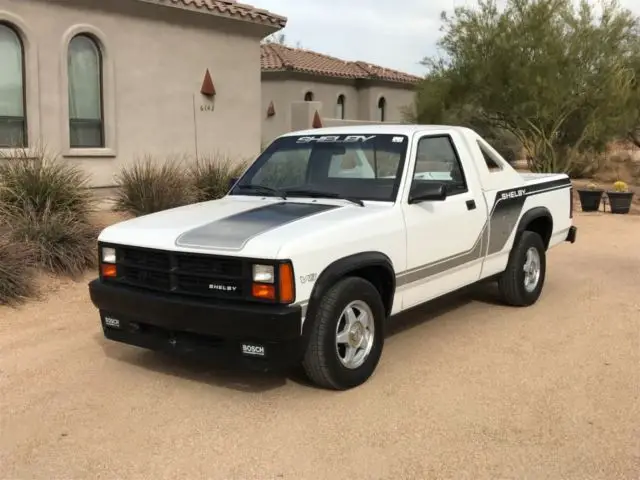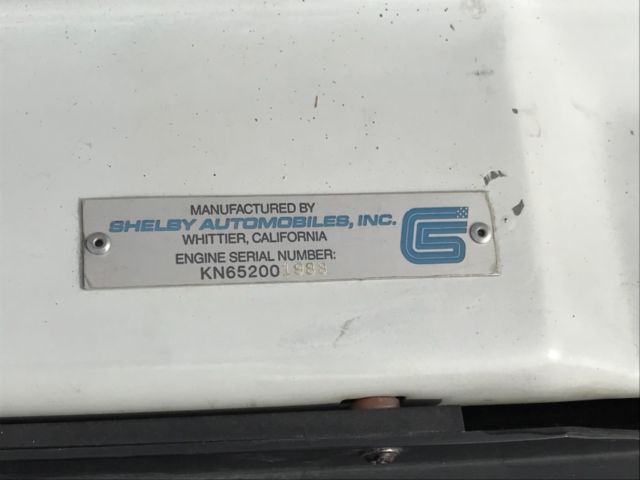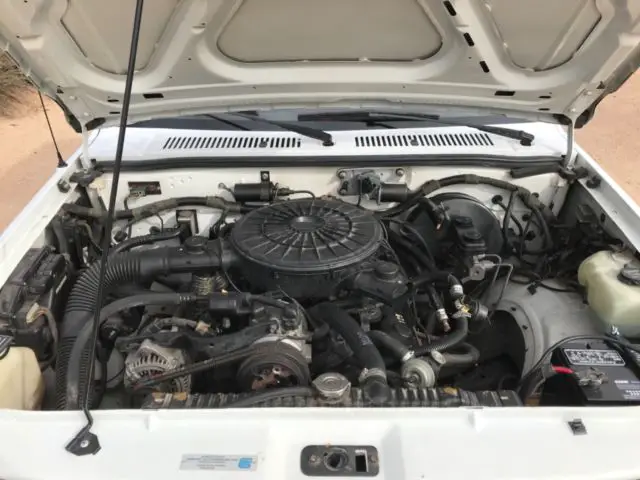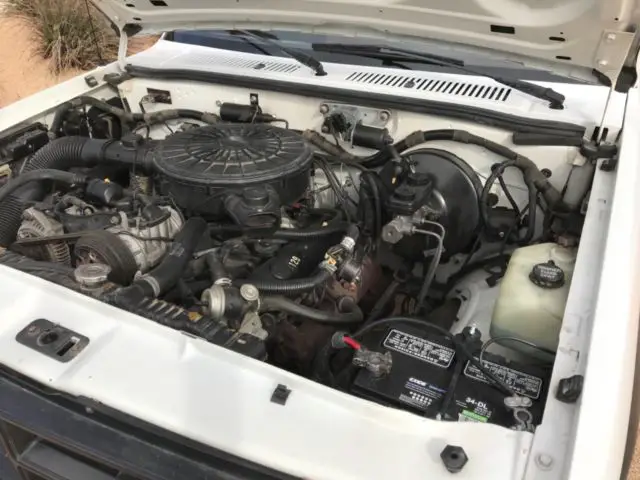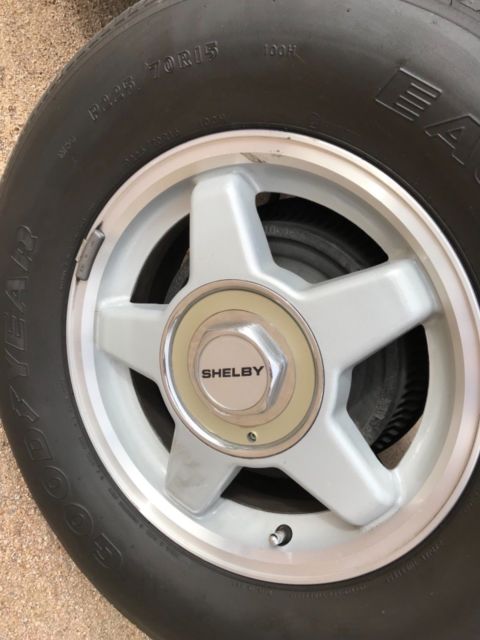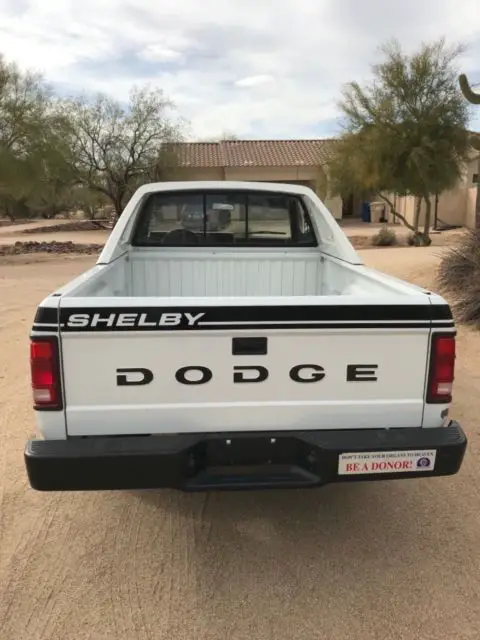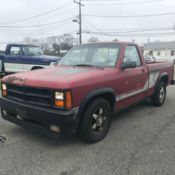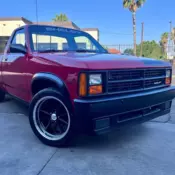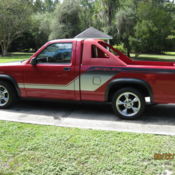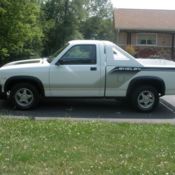1989 SHELBY Dodge Dakota #1 of 1475 - Driven by Carroll / Displayed in Museum
| Make: | Dodge |
| Model: | Dakota |
| Type: | Standard Cab Pickup |
| Trim: | Shelby |
| Year: | 1989 |
| Mileage: | 51,800 |
| VIN: | 1B7FL96Y8KS176109 |
| Color: | White |
| Engine: | V8 |
| Cylinders: | 8 |
| Fuel: | Gasoline |
| Transmission: | Automatic |
| Drive type: | RWD |
| Interior color: | Burgundy |
| Drive side: | Left-hand drive |
| Vehicle Title: | Clear |
| Item location: | Scottsdale, Arizona, United States |
| Extras |
|
Cassette Player |
| Listed by | Private seller |
Description of 1989 Dodge Dakota Shelby |
|
Offered for sale is a piece of history: This truck was used as a work vehicle by Carroll Shelby and Shelby American, Inc. It is in unrestored condition. There is chipped paint, faded decals, disconnected heater core, AC does not work, and it needs a tune-up. It does run, drive and stop. The interior is in excellent condition. It is being sold as-is. Excerpts from a Hemmings article: "The starting point for the Dodge Dakota Shelby was the regular-cab, two-wheel-drive, short-wheelbase Dodge Dakota Sport, which already came with a heavy-duty suspension and sport-tuned shocks. The truck's 3.9-liter V-6 was pulled, replaced by the same fuel-injected 5.2-liter (318-cu.in) V-8 used by the brand in its full-size pickups. To handle shifting duties, an A500 four-speed automatic with a locking torque converter was the only available transmission, and a SureGrip limited-slip differential ensured that burnouts were punctuated with dual lines, not just one. Fitting a V-8 into an engine bay designed to accommodate four- and six-cylinder engines turned out to be more of a challenge than first anticipated. With the conventional belt-driven fan in place, the larger engine lacked sufficient room to clear the radiator; the simple solution was to delete this fan and use an electric-powered pusher fan in front of the radiator to aid in cooling. An added bonus was a bump in horsepower, as the engine reportedly gained five horsepower by swapping the mechanically powered fan for an electric version. That brought the Shelby's output up to 175 horsepower at 4,000 RPM and 270 pound-feet of torque at 2,000 RPM. Redline was a very un-sports-car-like 4,750 RPM, but the Shelby (like most pickups) was more about low-end torque than top end. Though the numbers may sound modest today, the Shelby Dakota was capable of dashing from 0-60 MPH in around 8.5 seconds and delivering the quarter-mile in 16.5 seconds at a trap speed of 82 MPH. For a 3,610 pound pickup truck in 1989, those were impressive numbers. Though the suspension carried over from the Dakota Sport, the Shelby version did get hollow five-spoke 15-inch wheels fitted with 225/70HR15 Goodyear Eagle GT+4 tires, which would have upped the trucks entertainment value in the corners as well. It also debuted a rear-wheel anti-lock brake system that utilized a speed sensor, control module and a pressure-limiting valve to prohibit lockups. Inside, Shelby Dakota models received a leather-wrapped steering wheel with a Shelby logo; a bench seat and door panels with unique Shelby charcoal fabric; an instrument panel with a tachometer and a serial number plaque identifying the truck as one of just 1,500 built. Indicative of the truck's straight-line-speed primary mission, the seats offered absolutely no bolstering to keep driver and passenger in place when the road got twisty, although a center armrest and would prevent unintended contact between driver and passenger. In total, Shelby American produced 860 red and 640 white Shelby Dakota pickups at its facility in Whittier, California. The truck also marked a bit of a turning point for both Shelby and the domestic auto industry: In addition to representing the first rear-drive vehicle constructed by Shelby in two decades, it set the stage for muscle pickup introductions from other automakers in the coming years. The following year, Chevrolet rolled out its C-series-based 454 SS; in 1991, GMC launched its Sonoma-based all-wheel-drive and turbocharged Syclone; and Ford would follow with its own F-150-based Lightning in 1993. Clearly, the muscle truck was a fad that had staying power." |
 Home
Home Contact us
Contact us NEWEST CARS
NEWEST CARS SELL YOUR CAR
SELL YOUR CAR FAQ
FAQ